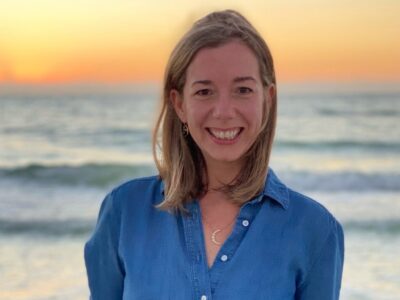
MPA in Environmental Science and Policy alum Haydée Rodríguez (’12) has always wanted to work in environmental law. Having started the program with a law degree and prior work experience as a program associate for the Fresh Water Action Network in Costa Rica, Haydée’s current job as an environmental advisor for the Inter-American Association for Environmental Defense is a perfect fit for her professional goals.
1. What is your current job?
I am an environmental advisor for the Inter-American Association for Environmental Defense. [The association] is a regional NGO based in San Francisco, Calif., with offices in Latin America. As part of the Costa Rican office, I focus in marine protection, freshwater conservation and human rights. We develop effective legal solutions to environmental challenges based on International Law and best practices.
2. Do your current job responsibilities align with the professional goals that you originally had when you began the Master of Public Administration in Environmental Science and Policy program?
My main professional goal is and has been to work as an environmental lawyer applying a regional and interdisciplinary approach. In AIDA, I manage teams across Latin America working on environmental advocacy and provide strategic support in environmental law cases. I also work closely with decision makers designing new regulations to protect fragile ecosystems and defend human rights.
3. What skills has the MPA-ESP program taught you that you think have proven useful to your current position?
I apply skills learned in the program daily. The most important being the ability to concisely and clearly communicate complex issues to decision makers. Very often, I have to summarize long technical and legal documents and recommendations into 10-minute presentations. The technical skills learned from the program have helped me incorporate scientific and economic arguments in advocacy campaigns.
4. What skills and tools do you hope to acquire through this job?
I am constantly learning from my job and colleagues. I hope to continue working on international law demonstrating the fundamental connection between human rights and the environment. In the future, I want to strengthen my managerial skills and keep participating in environmental policy-making processes.
5. How has collaborating with your fellow students in class projects benefited you professionally and personally?
From the challenges of time management to the satisfaction of achieving consensus, the multidisciplinary workshops trained me for real life policy-making. During the program, I had the opportunity to meet professionals from around the world. Their views and opinions enhanced my understanding of human rights and its implications. Each one of us brought a different background and experience that enriched our learning process. I made lifelong friends that I not only hope to work with in the future, but whose weddings I plan to attend.
6. How do you intend to utilize your degree from the MPA-ESP program to further your career?
It seemed during my job search that the first thing people notice of my CV was the MPA-ESP line. The degree provided a credible way to summarize my skills and knowledge in environmental science and policy. It clearly helped me open doors into different organizations and helped validate the hiring decisions. I now plan to use the network it provides to become a more efficient professional. As part of my duties, I work establishing alliances with like-minded individuals and organizations — alliances I plan to mine from the Columbia network.
Students in the MPA in Environmental Science and Policy program enroll in a year-long, 54-credit program offered at Columbia University’s School of International and Public Affairs, in partnership with the Earth Institute. Throughout this one-year program, students are immersed in courses that combine Columbia University’s hands-on approach to teaching public policy and administration with pioneering thinking about the environment. During the summer semester, students learn the fundamentals of environmental science, while in the fall and spring semesters, they focus on the policy and economics necessary to becoming successful environmental analysts and managers. Visit our website to learn more about the program.




Is there any pre-requisite to get enrolled in the MPA-ESP program?